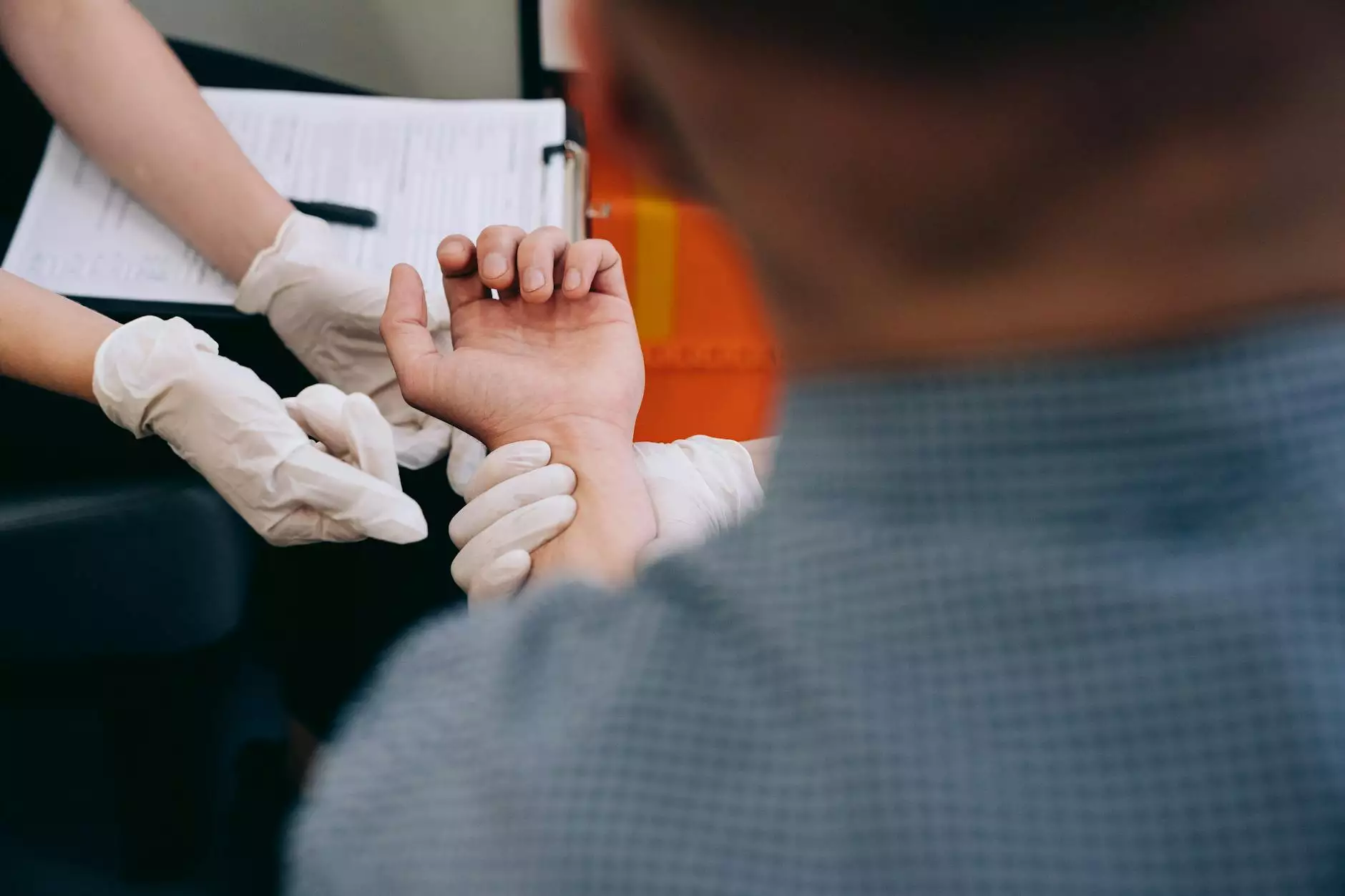Transform Your Life with Depression Therapy in South London

When it comes to mental health, understanding and addressing depression is crucial. Depression is a common yet serious mood disorder that affects how a person feels, thinks, and handles daily activities. Fortunately, there are effective treatment options available, particularly in areas like South London. In this comprehensive guide, we will delve deeply into the various aspects of depression therapy, the types of mental health professionals available, and how to choose the best approach for your unique needs.
Understanding Depression
Before exploring the specifics of depression therapy in South London, it is important to understand what depression is and its various forms. Depression can manifest in multiple ways, including:
- Major Depressive Disorder: Persistent feelings of sadness and loss of interest in activities.
- Persistent Depressive Disorder (Dysthymia): Chronic depression lasting for two years or longer.
- Bipolar Disorder: Characterized by alternating episodes of depression and mania.
- Seasonal Affective Disorder (SAD): Depression related to seasonal changes, often worsened in the winter months.
Each type of depression has its own set of symptoms and requires tailored treatment approaches. Recognizing these symptoms is the first step towards effective therapy and management.
The Importance of Seeking Treatment
Many individuals suffering from depression may feel hesitant to seek help. However, reaching out for support is a significant step towards recovery. Here are compelling reasons to consider depression therapy:
- Improved Quality of Life: Therapy can help restore a sense of normalcy, enabling individuals to engage with their life more fully.
- Connection with Professionals: Mental health professionals can provide valuable coping strategies tailored to your situation.
- Supportive Environment: Therapy offers a safe space to discuss feelings and experiences without judgment.
- Skill Development: Learning new coping mechanisms can equip individuals to handle future challenges.
What to Expect from Depression Therapy in South London
When pursuing therapy for depression, it is important to understand what to expect during the process. Therapy may involve:
1. Initial Consultation
The first step in therapy typically involves an initial assessment with a qualified professional. During this session, you will discuss your symptoms, medical history, and personal circumstances. This consultation aims to establish a baseline for your treatment.
2. Ongoing Therapy Sessions
After the initial assessment, you will engage in regular therapy sessions that may vary in frequency depending on your specific needs. These sessions can take different forms:
- Cognitive Behavioral Therapy (CBT): This is one of the most common types of therapy that focuses on identifying and changing negative thought patterns.
- Interpersonal Therapy (IPT): IPT focuses on improving personal relationships and social functioning, which can alleviate depressive symptoms.
- Psychodynamic Therapy: This approach explores the influence of the past on present behavior, seeking to uncover the root causes of depression.
- Mindfulness and Acceptance Therapy: This therapy encourages mindfulness practices and acceptance to help individuals manage their thoughts and feelings.
Finding the Right Therapist in South London
Choosing the right mental health professional can make a significant impact on your therapy journey. Consider the following tips and factors when searching for depression therapy in South London:
1. Credentials and Experience
Look for therapists who are licensed and have expertise in treating depression. Check their qualifications and experience in specific therapeutic approaches that may benefit you.
2. Specialization
Some therapists specialize in certain types of depression or demographics (e.g., adolescents, veterans). Find one whose specialization aligns with your needs.
3. Personal Connection
Therapeutic success often hinges on the relationship between the therapist and the client. Seek a therapist you feel comfortable with and who listens to your concerns genuinely.
4. Treatment Approach
Different therapists may use varying methods of treatment. Discuss their approach and ensure it resonates with your expectations and preferences.
5. Logistics and Accessibility
Consider the location of the therapist's office and their availability. Look for someone within South London who offers flexible scheduling options to accommodate your lifestyle.
Cost and Insurance Considerations
When exploring therapy options, it's essential to consider the financial aspect. Therapy costs can vary significantly based on the therapist's experience, location, and treatment format. In South London, many therapists will discuss their fees upfront to avoid any confusion. Here are a few options to consider:
- Private Therapy: Often more expensive but offers flexibility and personalized care.
- Insurance Coverage: Check if your health insurance plan covers mental health services, as many do, which can significantly reduce your out-of-pocket expenses.
- Sliding Scale Options: Some therapists offer sliding scale fees based on income, making therapy more accessible for individuals from various financial backgrounds.
Complementary Approaches to Therapy
While therapy is a cornerstone of treatment for depression, combining it with other approaches can enhance its effectiveness. Here are some complementary strategies:
1. Medication
In some cases, antidepressant medication may be prescribed alongside therapy to help alleviate symptoms. It is important to consult with a psychiatrist who can guide you through this process.
2. Lifestyle Changes
Incorporating healthy habits into your daily routine can also contribute to your overall mental wellness. Consider:
- Regular Exercise: Physical activity has been shown to boost mood and reduce symptoms of depression.
- Nourishing Diet: A balanced diet can have a positive effect on mental health.
- Sufficient Sleep: Prioritize restful sleep to help regulate mood and overall well-being.
- Mindfulness Practices: Engaging in yoga or meditation can reduce stress and enhance self-awareness.
Success Stories: Overcoming Depression
Many individuals in South London have successfully navigated their way through depression with the right therapy and support. Here are a few inspirational stories:
- Case Study 1: John, a 35-year-old man, struggled with major depression for years. After seeking therapy, he engaged in CBT and was able to identify and challenge his negative thought patterns, leading to significant improvements in his mood and outlook on life.
- Case Study 2: Sarah, a young professional, faced persistent depressive symptoms related to work stress. By utilizing IPT, she improved her communication with colleagues and developed stronger support systems, alleviating her feelings of isolation.
- Case Study 3: Alex, a teenager, found relief from seasonal affective disorder during the winter months by participating in therapy combined with light therapy and a regular exercise program.
Final Thoughts on Depression Therapy in South London
Living with depression can feel overwhelming, but it is crucial to remember that help is available. Depression therapy in South London offers a wealth of resources and dedicated professionals who are ready to support your journey to recovery. Whether you are considering therapy for the first time or seeking new strategies to manage your condition, taking that initial step can lead to a brighter and more fulfilling life.
Don't hesitate to reach out and find the right support. Your mental health matters, and with the proper guidance and treatment, you can reclaim your happiness and well-being.
Resources for Further Help
- CMH Counselling - Offers various mental health services, including depression therapy.
- Mind - Provides advice and support for anyone experiencing a mental health problem.
- NHS Mental Health Helplines - A resource for people needing immediate support.









